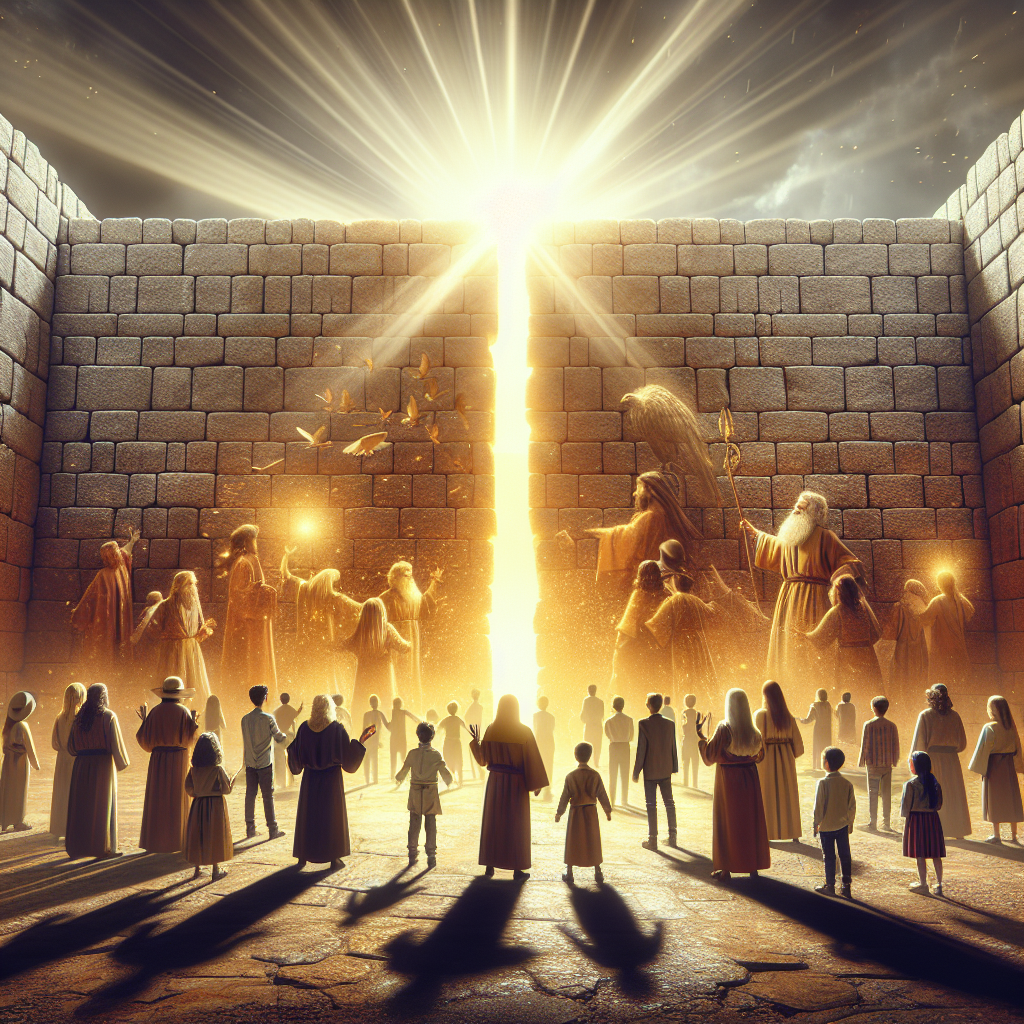Breaking Down the Walls: Biblical Insights from Pink Floyd’s “Another Brick in the Wall”
Have you ever found yourself humming the iconic tune of Pink Floyd’s "Another Brick in the Wall (Part II)"? The song’s catchy chorus, “We don’t need no education, we don’t need no thought control,” speaks to the inner rebellion many feel against being boxed into a narrow view of the world. What if we took those lyrics and viewed them through the lens of Biblical principles? Let’s explore how God’s Word offers freedom from the walls that confine us.
Rebellion and Conformity: A Biblical Perspective
Pink Floyd’s song highlights the suppression of individual thought and creativity by institutionalized education. This theme of rebellion against conformity aligns with a timeless biblical principle: the importance of not conforming to the patterns of this world.
Romans 12:2 (NIV): "Do not conform to the pattern of this world, but be transformed by the renewing of your mind. Then you will be able to test and approve what God’s will is—his good, pleasing and perfect will."
The apostle Paul emphasizes here the importance of renewing our minds so that we can experience God’s transformative power. This verse challenges us to break down the walls of societal conformity and seek God’s unique purpose for our lives.
Breaking the Chains of Oppression
“We don’t need no thought control” resonates deeply when considering Jesus’ mission to free us from the burdens of oppression and sin. Just as Pink Floyd’s lyrics call for breaking free from mental control, Christ invites us to experience true freedom.
John 8:36 (NIV): "So if the Son sets you free, you will be free indeed."
Jesus assures us that through Him, we can experience freedom from the constraints and controls that impede our spiritual growth. In Him, we find liberation from the walls of fear, sin, and societal pressures.
Creative Expression and Individuality
Pink Floyd’s message also underscores the importance of individual thought and creativity. The Bible likewise encourages us to embrace our God-given uniqueness.
1 Peter 4:10 (NIV): "Each of you should use whatever gift you have received to serve others, as faithful stewards of God’s grace in its various forms."
God wonderfully crafted each of us with unique talents and gifts. When we live out our individuality, we become stewards of His grace, inspiring others and glorifying God through our lives.
Reflection: What Walls Do You Need to Break?
-
Are there areas in your life where you feel controlled or confined by societal expectations?
-
How can you renew your mind and break free from conforming to the patterns of this world?
-
What unique gifts and talents has God given you, and how can you use them to reflect His glory?
Reflect on these questions and invite God to help dismantle the walls that hold you back.
Conclusion: Embrace Freedom in Christ
Pink Floyd’s “Another Brick in the Wall (Part II)” challenges us to break free from oppressive systems. As Christians, we are called to experience freedom in Christ and to live out our unique callings without conforming to worldly patterns.
Call to Action: Share your thoughts and experiences in the comments below. How have you experienced freedom in Christ? Let’s encourage one another in our journeys to break down the walls that confine us.
By engaging with these themes, you not only enrich your understanding of the song but also deepen your spiritual walk with Christ. Remember, in Jesus, you are free indeed!
~-end~
SEO Keywords:
- Biblical freedom
- Breaking down walls
- Individuality in Christ
- Don’t conform Bible
- Freedom in Jesus
- Pink Floyd Christian perspective
If you want to see how ANY song relates to Biblical principles, please try our Music and Scripture GPT. Simply key in any song or set of lyrics and let it show you things you might not have realized otherwise!


